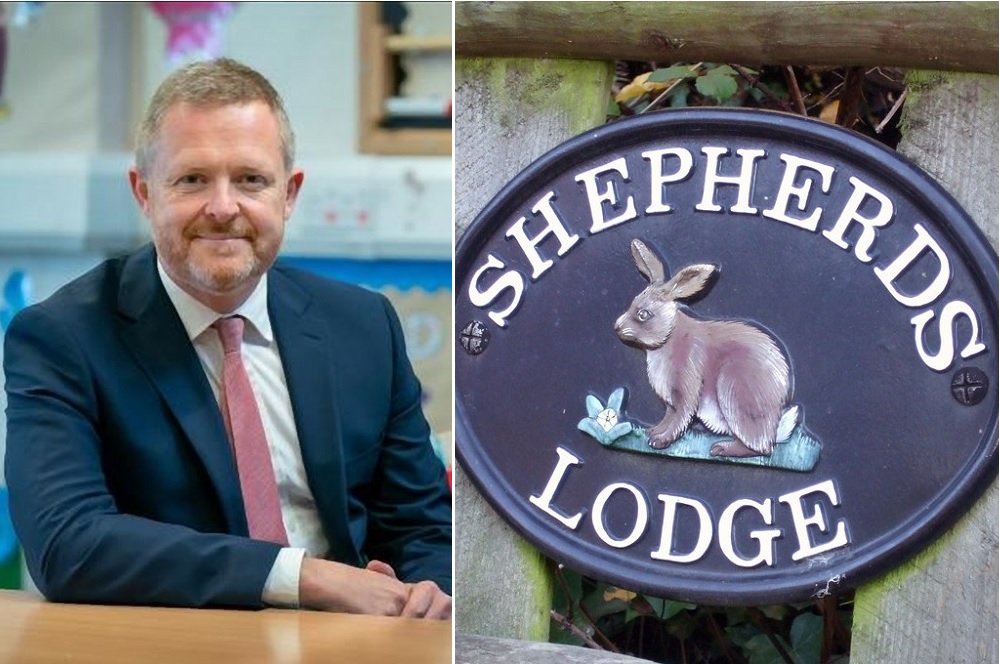Welsh Government to look at ways of stopping people from changing Welsh place names

The Welsh Government is looking at ways of stopping people from changing Welsh place names, saying that it has an “impact on the visible presence of the language in our communities”.
As part of the Welsh Language Communities Housing Plan launched by minister Jeremy Miles yesterday, they will conduct research into what can be done to stop the changing of Welsh place names.
The Senedd voted against a Plaid Cymru bill to protect historical place names in 2017. The issue was however debated again last year after a petition calling for the change was signed by over 18,000 people.
The plan published by the Welsh Government yesterday included a number of measures to tackle the challenges facing Welsh-speaking communities with a high concentration of second homes.
“Statutory guidance requires local authorities to take account of the List of Historic Place Names when dealing with formal requests to rename properties with historic names,” the plan says.
“However, it is possible for homeowners to change Welsh names in more informal ways and this has an impact on the visible presence of the language in our communities.
“No evidence base currently exists on the scale of this problem. We will therefore commission specific research to examine the number of names that are changing and how and where they are changing. This research will inform further action in this area.”
‘Difference’
Other elements of the plan included cultural ambassadors to help integrate newcomers into Welsh-speaking communities.
Announcing a £500,000 package of measures in the Senedd, Jeremy Miles told the Senedd the Welsh government would “create a network of cultural ambassadors”.
“These will be local people who know their communities well. They will explain cultural issues and the language situation in order to help integrate newcomers,” he said.
“People are more willing to be part of a community when they have an understanding of their community in which they live.”
Welsh language campaign group Cymdeithas yr Iaith however noted its disappointment that so many of the measures still depended on voluntary actions and that “neither the measures nor the funding go far at all”.
Robat Idris, Chair of Cymdeithas yr Iaith said: “A lot of the content of the plan are things that have already been announced but beyond that there is still talk of more voluntary steps in the Dwyfor pilot area.
“But we don’t see measures the existing pilot area are extended beyond the area. The geographical and operational scope of any measures need to expand significantly if we want to see Welsh as an everyday language in communities all over Wales.
“There are housing problems across Wales and local people can’t get a home in their communities because they can’t afford a house on the open market or rent – including in communities that aren’t affected by tourism.
“These measures to tackle second houses and holiday accommodation will not be enough in those areas. What would really make a difference is a comprehensive Property Act that can manage the open market and therefore empower local communities across Wales.”
Support our Nation today
For the price of a cup of coffee a month you can help us create an independent, not-for-profit, national news service for the people of Wales, by the people of Wales.






An excellent firm stand again. A strong message to anyone who comes here with a ‘MY property in MY country’ attitude that eradication of our identity, heritage and language will not be tolerated.
This is to be welcomed.
We must also encourage people to pronounce place names properly.
For example, in my area many people, including Welsh people, pronounce Abergele as “Ab-y-geli”, Rhyl as “Ryl” or Prestatyn as “Prysdatyn”.
I have often been criticized and ridiculed for pronouncing them correctly, as the mispronounciations have become the norm.
A pot of paint needed
Some recent examples from Ffestiniog:
Pen y Cae – Stars and Clouds Cottage
Tyddyn Cwtyn – Waterfall Cottage
Tan y Rhos – Undermoor.
Colonisation is a social crime.
Deport to Rwanda?
I don’t speak much Welsh.
Yet I believe that we should take an approach that even NEW developments must be named in the language of the land. They may be described in English, but should be named in Welsh. Every, Single, Time.
No “Badger’s Nook” or “Beech Glade” nonsense.
Even houses.
Oh, and NO “bilingual” roadsigns.
Not:-
Abertawe
Swansea
Just:-
Abertawe
You hit the nail on the head there, my friend.
Abertawe – Swansea isn’t the best example: ‘Swansea’ has about as old an history as Abertawe (and we should be preserving history as much as is possible). Caerdydd/Cardiff, Carmarthen/Caerfyrddin, these Anglicizations are the real scourge. No reason to maintain them. More recent English re-namings too should be questioned. Perhaps a national naming system a bit like the Grade-listings for buildings could do the trick for names of historical and cultural significance, as well as governing the naming of new dwellings etc.
Don’t look at ways of protecting. Just do it. Make it Welsh law that it’s prohibited to change, corrupt or remove entirely Welsh place names , house names , road signs etc…. And those already removed or changed be restored to their original state. Our heritage is precious and sacrosanct.
Yes, just do it. All this faffing around, which is the norm for this Senedd, is always a case of the horse having bolted … whilst Rome burns!